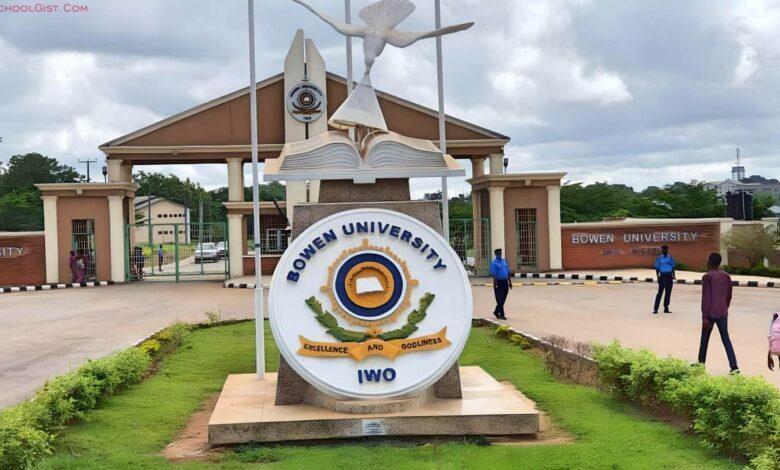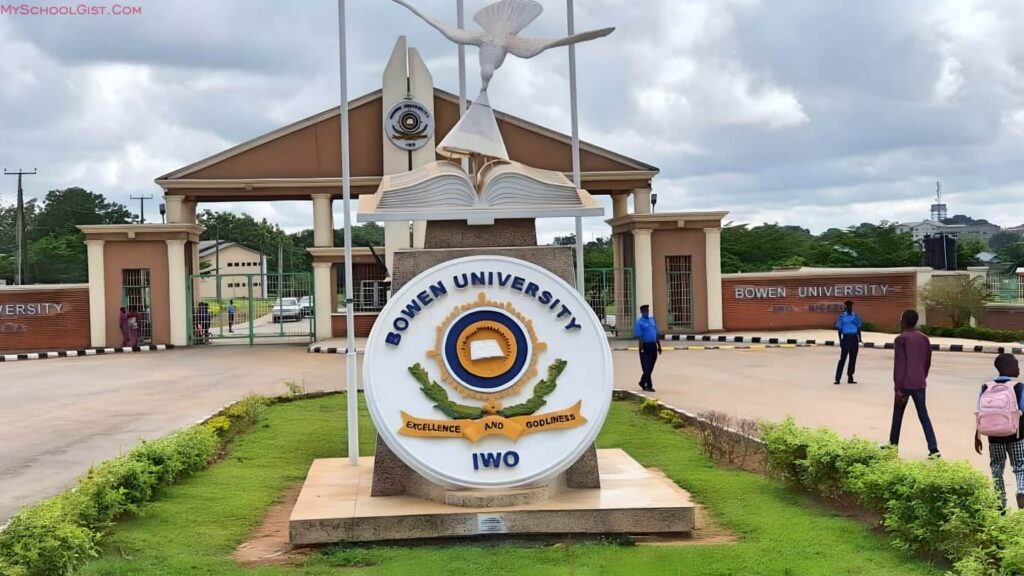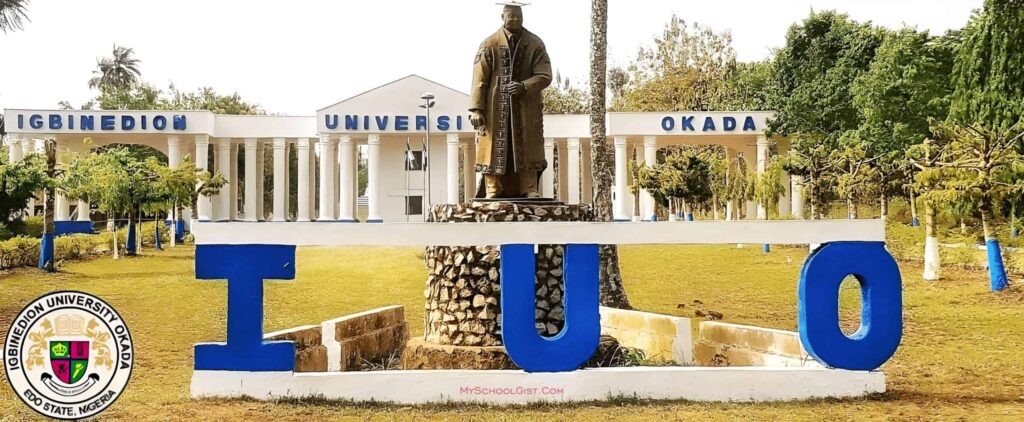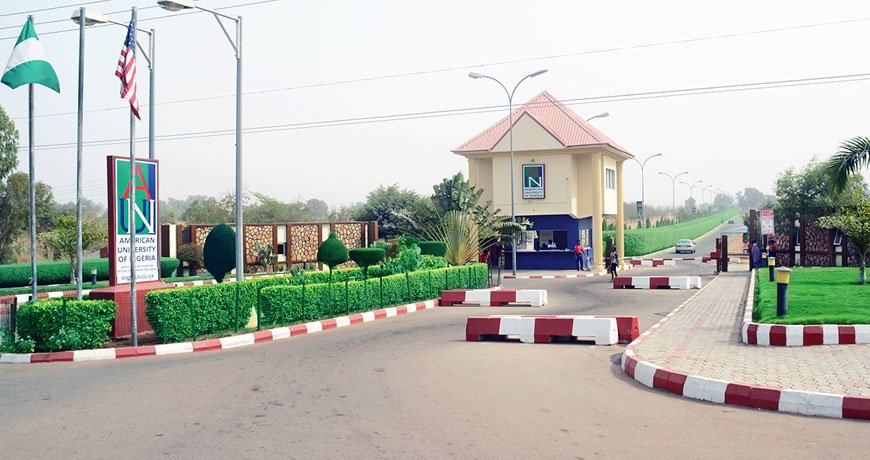Top 10 Best Private Universities in Nigeria

Nigeria is home to a wide range of universities, both public and private, that provide quality education to students. In recent years, private universities in Nigeria have gained prominence and have been recognized for their contributions to the educational sector. These institutions have raised the standard of education and have been ranked among the best universities in the country. In this article, we will explore the top 10 best private universities in Nigeria, their locations, structures, and course offerings.
Education in Nigeria
The oversight of education in Nigeria is managed by the Federal Ministry of Education. Local authorities are responsible for implementing state-controlled policies related to public education and state schools. The education system is categorized into Kindergarten, Primary education, Secondary education, and Tertiary education. Since gaining independence from Britain, Nigeria’s federal government has experienced instability, hindering the successful implementation of a unified set of education policies.
Regional disparities in quality, curriculum, and funding are prominent features of Nigeria’s education system. Currently, Nigeria has the largest population of out-of-school learning youths globally. The educational systems in Nigeria are classified into two: the public system, where students only pay for the Parents Teachers Association (PTA), and the private system, where students incur expenses such as school fees, sports fees, exam fees, computer fees, etc., making it a more costly option.
In Nigerian schools, education is conducted in English. On November 30, 2022, the Minister of Education, Adamu Adamu, announced a government plan to eliminate English instruction in primary schools, opting instead for instruction in Nigeria’s local languages.
Tertiary education
The government exercises predominant control over university education in Nigeria. Tertiary education in the country encompasses Universities (both Public and Private), Polytechnics, Monotechnics, and Colleges of Education. As of August 2017, there were a total of 153 registered universities, with 40 and 45 owned by the federal and state governments, respectively, and 68 privately owned.
According to the Federal Ministry of Education, Nigeria has 43 approved federal universities, 47 state universities, and 75 private universities. Additionally, there are 28 federal polytechnics, 43 state polytechnics, and 51 private polytechnics, along with 22 federal colleges, 47 state colleges, and 26 private colleges. In a bid to increase the number of universities, the Federal Government granted licenses to 9 new private universities in May 2015.
On February 3, 2021, during the tenure of President Muhammadu Buhari, the Federal Executive Council approved the establishment of 20 new private universities in Nigeria. The list of these universities, along with their locations, includes Mudiame University in Irrua, Edo State; Claretian University in Nekede, Imo State; Ave-Maria University in Piyanko, Nasarawa State; Topfaith University in Mkpatak, Akwa Ibom State, among others.
Entry requirements for first-year students in most Nigerian universities typically include a minimum of SSCE/GCE Ordinary Level Credits at a maximum of two sittings. Additionally, a minimum cut-off mark score of 180 and above in the Joint Admissions and Matriculation Board (JAMB) entrance examination out of a maximum of 400 marks is required. Candidates with a minimum of Merit Pass in National Certificate of Education (NCE), National Diploma (ND), and other Advanced Level Certificates, with at least 5 O/L Credits, are granted direct entry admission into the relevant undergraduate degree programs.
Students usually enter university between the ages of 17-18 and pursue academic degrees. Historically, universities in Nigeria have been categorized into several tiers.
State Vs. Private universities in Nigeria
Choosing between a state and private university in Nigeria can be a tough decision. Both have their own pros and cons, and the best choice for you will depend on your individual circumstances and priorities.
State Universities
- Pros:
- Affordability: State universities are much cheaper than private universities. Tuition fees are heavily subsidized by the government, making them accessible to a wider range of students.
- A wider range of courses: State universities offer a wider range of courses than private universities, including many specialized programs that are not available elsewhere.
- Diversity: State universities are more diverse than private universities, with students from all over Nigeria and beyond. This can be a great opportunity to meet new people and learn about different cultures.
- Cons:
- Larger class sizes: State universities can be very crowded, with large class sizes and limited resources. This can make it difficult to get individual attention from professors.
- Infrastructure issues: State universities often suffer from infrastructure problems, such as inadequate housing, classrooms, and libraries.
- Strikes: State universities are more prone to strikes by academic and non-academic staff, which can disrupt your studies.
Private Universities
- Pros:
- Smaller class sizes: Private universities typically have smaller class sizes than state universities, which can allow for more interaction with professors and a more personalized learning experience.
- Better infrastructure: Private universities generally have better infrastructure than state universities, with newer buildings, better-equipped classrooms, and more up-to-date libraries and technology.
- Fewer strikes: Private universities are less likely to be affected by strikes, as they are not reliant on government funding.
- Cons:
- Cost: Private universities are much more expensive than state universities. Tuition fees can be a significant barrier for many students.
- Limited range of courses: Private universities may not offer as wide a range of courses as state universities, particularly in specialized fields.
- Less diversity: Private universities can be less diverse than state universities, as they cater to a more specific demographic.
Ultimately, the best way to decide between a state and private university is to visit both types of institutions and see which one feels like a better fit for you. Consider your budget, your academic interests, and your preferred learning environment when making your decision.
Here are some additional factors to consider:
- Your academic record: If you have a strong academic record, you may be eligible for scholarships or financial aid that can help offset the cost of attending a private university.
- Your career goals: If you are interested in a specific career, you may want to choose a university that has a strong program in that field.
- Your location: Some state universities are located in rural areas, while others are located in major cities. Consider whether you would prefer to live in a rural or urban environment.
Top 10 Best Private Universities in Nigeria
1. Covenant University

Covenant University, located in Otta, Ogun state, is undoubtedly one of the leading private universities in Nigeria. Established in 2002, Covenant University has gained a reputation for its commitment to spirituality and innovation. The university is affiliated with the Living Faith Church Worldwide and is accredited by several educational bodies, including the National University Commission.
Covenant University offers a wide range of courses through its four faculties: Engineering, Leadership and Development Studies, Science and Technology, and the College of Management and Social Sciences. The university boasts state-of-the-art facilities, including well-furnished lecture halls, hostels, a library, and a medical centre. The emphasis on academic excellence and character development has made Covenant University a top choice for students seeking a quality education.
2. Babcock University

Babcock University, located in Ilishan-Remo, Ogun state, is another prominent private university in Nigeria. Established in 1959 and accredited by the Nigerian government in 1999, Babcock University has a rich history and a commitment to providing quality education. The university is owned by the Seventh-day Adventist Church and offers a variety of undergraduate and postgraduate programs.
The university’s nine faculties, including the Schools of Medicine, Computing and Engineering Sciences, and Social Sciences, provide students with a wide range of academic options. Babcock University is known for its well-furnished lecture halls, halls of residence, library, and other state-of-the-art facilities. With a diverse student population and a focus on holistic education, Babcock University continues to be a top choice for students.
3. Joseph Ayo Babalola University

Joseph Ayo Babalola University (JABU), founded by the Christ Apostolic Church, is located in Ikeji-Arakeji, Osun state. Established in 2004, JABU is the first entrepreneurial university in Nigeria. The university aims to provide a world-class education and promote discipline, entrepreneurship, and the effective management of resources.
JABU offers a variety of courses across its seven faculties, including the College of Pharmacy, Engineering, and Law. The university has well-equipped lecture halls, laboratories, and other facilities that support learning and research. With a focus on academic excellence and practical skills development, JABU has earned its place among the top private universities in Nigeria.
4. Bowen University

Bowen University, located in Iwo, Osun state, is a private Christian university known for its commitment to academic excellence and moral values. Founded in 2001, Bowen University offers a wide range of courses across its various faculties, including Agriculture, Education, Medicine, Sciences, Social and Management Sciences.
The university provides students with well-furnished lecture halls, hostels, and other facilities that support their academic and personal growth. Bowen University’s emphasis on character development, discipline, and spirituality has made it a top choice for students seeking a holistic education.
5. Redeemer’s University

Redeemer’s University, established in 2005 by the Redeemed Christian Church of God, is located in Ede, Osun state. The university is led by Pastor Enoch Adeboye, the General Overseer of the church. Redeemer’s University is known for its commitment to research and excellence in education.
The university offers a wide range of courses through its four faculties: Management Science, Humanities, Social Science, and the School of Natural Sciences. Redeemer’s University has made significant contributions in the field of genomics and infectious diseases, including accurate diagnosis of Ebola cases during the 2014 outbreak. With its focus on research, innovation, and academic excellence, Redeemer’s University continues to stand out as one of the best private universities in Nigeria.
6. Igbinedion University

Igbinedion University, founded in 1999 by Sir Gabriel Osawaru Igbinedion, is Nigeria’s first licensed private university. Located in Okada, Edo state, the university is individually owned and has no religious affiliation, welcoming students from different religious and cultural backgrounds.
The university’s mission is to pursue excellence in teaching, research, and scholarship while enhancing human advancement, prosperity, and public welfare. Igbinedion University offers courses across its seven faculties, including Pharmacy, Engineering, Arts and Social Sciences, and Health Sciences. With its commitment to academic excellence and diversity, Igbinedion University has earned its place among the top private universities in Nigeria.
7. American University of Nigeria

The American University of Nigeria (AUN) is a private university located in Yola, Adamawa state. Founded in 2004 by former Nigerian Vice President Atiku Abubakar, the university aims to train future leaders and serve as a catalyst for economic development in the region.
AUN offers a wide range of courses and provides high-level training in information technology, entrepreneurship, and arts and sciences. The university’s commitment to academic excellence and its focus on practical skills development has made it a top choice for students seeking a well-rounded education.
8. Afe Babalola University

Afe Babalola University (ABUAD), founded by renowned lawyer and philanthropist Afe Babalola, is located in Ado-Ekiti, Ekiti state. Established in 2009, ABUAD aims to provide a world-class educational centre of excellence in academics, character, sports, and vocational development.
The university offers courses across its six colleges, including Sciences, Law, Engineering, Social and Management Sciences, Medicine and Health Sciences, and Postgraduate Studies. ABUAD’s commitment to academic excellence and its well-equipped facilities have made it a top private university in Nigeria.
9. Landmark University

Landmark University, established by the Living Faith Church in 2011, is located in Omu-Aran, Kwara state. The university aims to meet the agricultural needs of Nigeria and provide a world-class education in agriculture and related fields.
Landmark University offers degree programs in various courses, including Agriculture, Sciences, Engineering, Social Sciences, and Management. The university’s commitment to academic excellence and its emphasis on faith-based values have made it a top choice for students seeking a unique educational experience.
10. Bells University of Technology

The Bells University of Technology, located in Otta, Ogun state, is a private university that was established in 2005. The university focuses on national development and entrepreneurship, fostering learning in research and technological innovation.
Bells University offers degree programs in various courses across its colleges, including Natural and Applied Sciences, Management Sciences, Engineering, and Environmental Sciences. The university’s commitment to academic excellence and its state-of-the-art facilities have made it a top private university in Nigeria.
Conclusion
In conclusion, private universities in Nigeria have played a significant role in raising the standard of education in the country. Covenant University, Babcock University, Joseph Ayo Babalola University, and Bowen University are among the top private universities in Nigeria that have consistently provided quality education to students. Redeemer’s University, Igbinedion University, American University of Nigeria, Afe Babalola University, Landmark University, and Bells University of Technology are also recognized for their contributions to the educational sector. These universities offer a wide range of courses and have well-equipped facilities that support learning and research. Students seeking a quality education in Nigeria can consider these top private universities as their preferred choice.





